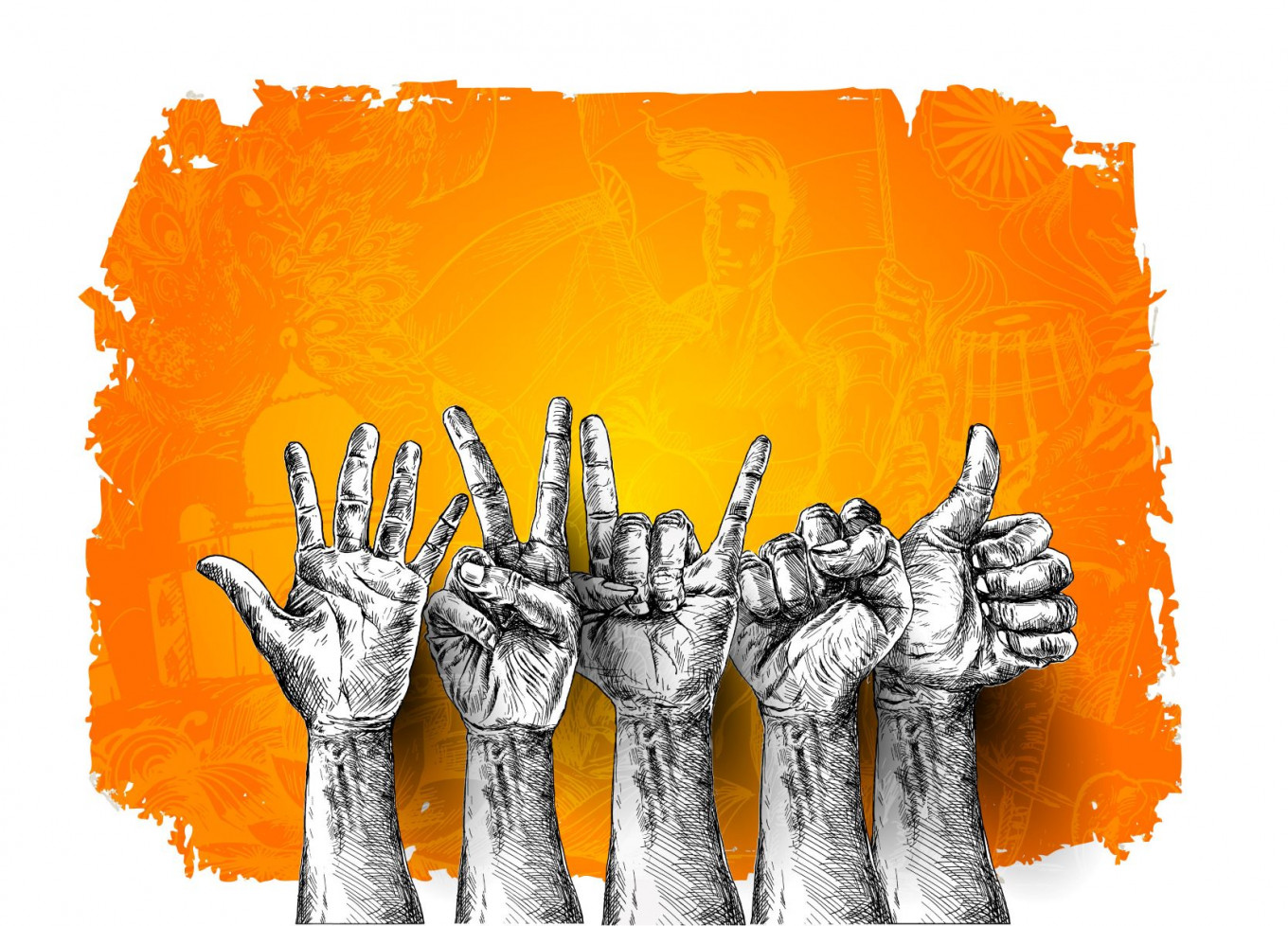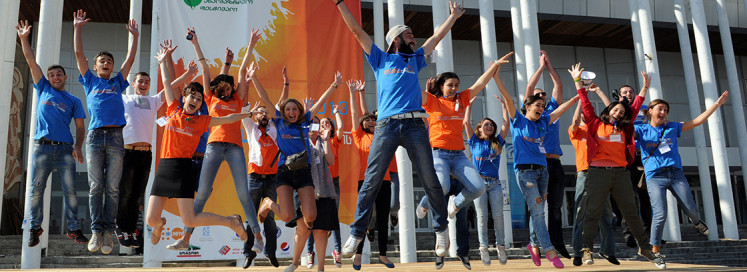Popular Reads
Top Results
Can't find what you're looking for?
View all search resultsPopular Reads
Top Results
Can't find what you're looking for?
View all search resultsPutting young people first: Ensuring access to SRHR services
The pandemic has put young people’s access to sexual reproductive health and rights (SRHR) services at risk.
Change text size
Gift Premium Articles
to Anyone
Calls for investments in young people have increased dramatically in recent years.
But the year 2020 is proving to be a difficult, life changing year as the pandemic has exposed deep inequalities in income, access to basic services and social protection for young people.
“Young people’s access to SRH services is even more limited now,” said Heidrun Fritze, technical analyst for adolescents and youth at the United Nations Population Fund (UNFPA) Asia Pacific.
The world will celebrate International Youth Day 2020 this Aug. 12, with this year’s theme, “Youth engagement for global action”, seeking to highlight the ways in which engagement of young people at the local level is enriching national and multilateral institutions and processes.
“[It’s] a day for you, a day for me and a day for the nearly 1 billion young people aged 14 to 24 in the Asia Pacific region,” Fritze said.
Fritze made the statement while giving introductory remarks during the fourth session of the 10th Asia Pacific Conference on Sexual Reproductive Health and Rights (APCRASRH10) virtual conference on Aug. 3.
The conference, titled “Young People and SRHR in the Asia Pacific”, is part of a series organized by the steering committee of APCRSHR10, UNFPA and Citizen News Service (CNS).
Fritze said investment in SRH during this life stage brought a triple dividend of benefits, presenting a unique window in which to address norms, behaviors and risks that are not only important for health development and rights of young people but also for SRH across the course of one’s life and for the health and rights of the next generation.
Youth, she said, needed comprehensive sexuality education (CSE), access to high quality services and enabling policy, legislative and community environments to support a healthy transition into adulthood.
Decades of experience and research show that bottom-up, grassroot approaches are better at bringing about change because communities themselves are best suited to change themselves.
“Young people are the most effective advocates for their own rights when given the chance to express themselves and to know and learn about their rights,” said Fritze.
Access to SRH services for young adults are shaped and limited by various factors including social and cultural norms and laws.
Youth matters: The ongoing pandemic has put serious strain on many health services, including young people’s access to sexual reproductive health and rights (SRHR) services. (Courtesy of UNFPA/-)In her presentation, Shiang Cheng Lim of independent and nonprofit research institute RTI International Malaysia said recent research had been conducted to understand the countries’ laws and their intersection with social and cultural norms, especially in Southeast Asia.
The study, coauthored with Brayant Gonzales of the International Planned Parenthood Federation – East South East Asia and Oceania Region and Nora Evriani of the Indonesian Planned Parenthood Association, aimed to determine the impact of the law and its intersection with other contextual factors (social-economic, political, cultural and religious) on young people's access to SRH services in Indonesia, Malaysia and the Philippines.
“Youth’s access to SRH services in Indonesia, Malaysia and the Philippines is limited by laws and regulations directly and indirectly,” Lim said in her presentation “Overprotected and Underserved – Legal barriers to young people’s access to sexual and reproductive health services in Southeast Asia countries” during the virtual conference.
Citing examples, she said the legal age of medical consent was 18 years, which fails to address the youth’s SRH needs in regard to under-18 sexual activity.
Meanwhile, she added, access to SRH services for unmarried youth, especially Muslims, was also indirectly restricted by sharia as well as socio-cultural norms that criminalize or stigmatize all sexual acts outside of marriage.
She said the direct and indirect effects of laws and legislation intersecting with socio-cultural norms and religious beliefs, led to, among other things, restriction of young people’s access to specific SRH services, such as abortion, or requiring third-party authorization for services such as parental consent.
The socio-cultural and legal barriers, she said, in turn resulted in putting young people at risk of poor SRH outcomes, such as early and unintended pregnancy, unsafe abortion, sexually transmitted infections and HIV. It also placed economic barriers in the way of individuals to earn a living – further marginalizing those from economically vulnerable groups.
“The issues of sex, sexuality and reproduction are taboo in many Southeast Asia countries, and perceived stigma and embarrassment can lead to a reluctance to discuss and address these issues or restrict certain SRH services for people who do not conform to socially accepted norms of behavior, such as unmarried young people and LGBTQI [people],” Lim said, referring to lesbian, gay, bisexual, transgender, queer and intersex people.
There are also many misunderstandings among young people regarding SRH.
“Youth and adolescents want to learn about SRH but they lack space and resources to gain information,” said Vu Tran Dung, vice chair of Youth LEAD, a large network among young key populations in Asia and the Pacific.
He said current school programs were quite backward and required innovation based on real-world context, with parents and teachers key factors affecting youth. A major barrier, he added, was also the policies of local authorities.
“There is an urgent need to provide an enabling environment for youth and adolescents to speak up, receive and exchange correct information. We also need to advocate with local authorities,” Dung said in his presentation, titled “Sexual and reproductive health rights in young key populations in Asia Pacific”, at the conference.
There are also many misconceptions surrounding the impacts of the COVID-19 pandemic.
Dung said one misconception was that physical distancing would force young people to stay at home, leading to a decrease sexual behavior and reducing the need for SRH products and services.
The facts were, he said, the pandemic had blocked young people from social communication, and without entertainment, their sexual demand had increased.
“Poor access to healthcare services and preventative tools during lockdowns has pushed people toward sexually risky behaviors,” Dung said.
He said his regional network had recorded that the number of people seeking testing services was three times higher than before the pandemic, while the number of people testing positive for HIV had increased 2.5 times, with 80 percent of them under 18.
Youth LEAD works with more than 50 focal points in 19 countries to advocate for the rights of young key populations aged between 14 and 30.
The network has also launched the TEENGEN program, a leadership training course for adolescents from key populations in the Asia Pacific region that targets adolescents in communities and schools.
The program provides tools to, among other things, raise awareness through games and role playing and holding workshops to clear up misunderstandings.
“Physical distancing is good but healthcare services and communication are irreplaceable. Social distance is just a part of the prevention,” Dung said. (ste)











